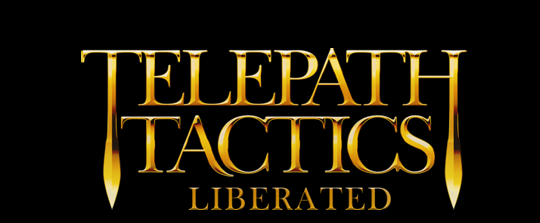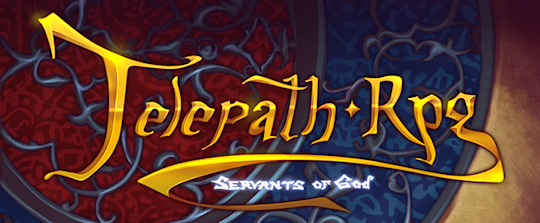I was all ready to post a new Developer Rant about skill-based character creation systems. I was ready, but then John Walker changed my mind. (The writer, not the whiskey—that would be a whole ‘nother article.)
Mr. Walker, for those of you who don’t know of him, is one of the founding fathers of the preeminent PC gaming blog Rock Paper Shotgun. Presently, he’s a bit like the site’s combination beat reporter/resident bomb-thrower. Sometimes he writes really excellent pieces digging into consumer rights issues and junk science concerning video game violence. Other times, he posts rants on various subjects. Sometimes I agree with the rants; sometimes I don’t. Today’s rant is fundamentally agreeable to me, but I feel like it misses an important point. Here’s the gist of what Mr. Walker had to say:
“Where is our commentary? Where is our criticism? Where is our subversion? Where is the game that questions governments, challenges society, hell, asks a bloody question? Let alone issues. Good heavens, imagine a game that dealt with issues!”
Now, I totally agree with John’s central premise here. The industry’s single-minded obsession with the epic has grown tiresome, in no small part because it overshadows the importance of more intimate approaches in games. Difficult and contentious issues that actually matter to peoples’ lives are abandoned in favor of empty conflict. Nearly across the board, game stories have largely become exercises in recycling the same weary jumble of tired hero’s journey tropes, employed without focus or ambition.
But there’s something wholly absent from the rant, something that can’t be ignored when we talk about video games maturing: the discourse that surrounds these games on game review sites. The rant lacks any sense of how games journalism feeds into gaming’s delayed adolescence. “I want games to be a medium that merits the mainstream coverage we constantly claim they deserve,” Mr. Walker says. I’d flip this around: coverage is such that most of the sites that do cover games get exactly the games that they deserve.
I’ve been arguing for years now that games need to start offering better writing and more mature themes. For my part, I’ve tried to help combat the drought of meaningful games, curating notable indie RPG releases on IndieRPGs.com and recently releasing an RPG of my own complete with biting social commentary and critique. It’s precisely the sort of game that, if you believe the block quote above, we aren’t seeing any of these days.
To their credit, RPS featured this game twice: however, they have yet to actually explore the game on a semiotic level. For that matter, neither has anyone else. Every review of Telepath RPG: Servants of God mentions the graphics. Every review mentions the combat mechanics, the setting. Sometimes the music gets a nod. The game’s pacing oftentimes comes up. A couple of reviews say good things about the writing; one preview states in passing that the game is structured around a tight-knit, focused metaphor. That’s all good stuff, all relevant issues to raise in a review. But I have yet to see anyone actually analyze the game’s central metaphor, or make an argument about what the game means.
This is a little frustrating to me, since the game is designed with precisely that sort of analysis in mind. Midway through, you can actually get into a discussion with one of the game’s characters about how to analyze metaphors in poetry. In addition to fleshing out the characters involved, it’s my way of subtly encouraging the player to think about what they’re seeing and experiencing as they play.
This stuff matters. Metaphors, analogies, signs and symbols: all of these stand implicitly for something else, permitting an artistic work to contain layers of meaning that reveal themselves through careful study. A games journalism that cares about sophistication and maturity in games would make some effort to uncover these things. It would examine a game’s themes, analyzing the symbolic significance of dialog, in-game events, visual symbolism, and other viscera. Buttressed with careful, detailed analysis, it would offer a coherent theory of what the game, as a whole, is ultimately trying to say on a deeper-than-superficial level (or, alternatively, explore how the game fails to support its themes).
Unfortunately, mainstream games journalism almost never strays into this territory. Rock Paper Shotgun is an unusually good games publication, but I can think of only one game that they have ever given this sort of thorough symbolic treatment: Pathologic, in a series written by Quintin Smith. (He no longer writes for the site.) Then, I suppose there was that time that someone on Destructoid decided to try a serious thematic analysis of Gears of War 2. And we’re done. That’s it as far as mainstream game sites trying to really, thoroughly evaluate games on a symbolic level. (If you dig around, you can find some stuff on a couple of smaller sites like Brainy Gamer and Necessary Games.)
“So what?” you might say. “Maybe there would be more symbolic games criticism if more games actually made a play for symbolic significance.” While this is likely true, it isn’t necessary. After all, a game doesn’t have to make symbolic sense to be critiqued on a semiotic level. Games with terrible graphics are critiqued on an aesthetic level. Games with poor sound are critiqued on their audio. Imbalanced games are criticized on design grounds. There are plenty of areas where games fail that games journalists have no problem commenting on. Why shouldn’t coherency of theme and symbolism be one of them?
The way the industry is structured, critical focus has to come first if mainstream games are going to start getting this right with any regularity. Put simply, games are largely juvenile because games discourse is largely juvenile. If it wasn’t obvious to you already, consider that games journalists are not the passive, helpless victims of an immature games industry. To the contrary: journalists are active and influential participants in shaping that very industry. Collectively, they all but decide which games do well and which head straight for the bargain buckets—and just as importantly, on what grounds.
Until journalists start paying attention to symbolism in their game reviews, developers have little reason to do so themselves. Consider that developers have limited resources. If you are a business owner with $6,000 left in your budget and you have a choice of either (a) hiring a good writer or (b) contracting with a good visual artist, the rational choice is to hire the person whose contributions will make a bigger difference to the game’s critical reception (and thus, sales). Reviewers seldom discuss a game’s writing, and virtually never discuss a game’s themes–but they always discuss visual appearance. In fact, many games get great coverage on the basis of visuals alone. Thus, a developer with limited resources has every incentive to invest those resources in visuals rather than in making the game thematically sophisticated and well-written.
Of course, the flip-side of this is that games journalists have a great deal of power to improve this situation. The moment game reviewers start consistently and thoroughly taking developers to task within game reviews for poor characterization, nonsensical themes and inconsistent symbolism—the instant that they start seriously looking at game narrative and symbolism in depth—the very second that these things start mattering to a game’s score as much as superficial aspects like graphics—that is when developers will take notice of them. Because they’ll have no choice.
This isn’t a job that games journalists can leave to someone else. When John Walker says that he wants games that will incite arguments among academics, I want to grab him by the shoulders and yell: “Forget them. You start making arguments!” You see, symbolism and thematic analysis aren’t just for tenants of the ivory tower. They’re for everyone with a brain and the will to think. And that includes the very games journalists who are tired of having to review juvenile tripe. Every writer who wants games to challenge him as a thinking adult needs to start engaging with games on that level, even if they believe the games aren’t ready for it. It has to start somewhere.
As for me, I await the day when characterization, theme and symbolism can finally make a difference to a game’s Metacritic score. For now, however, I expect most developers will just keep on hiring artists.






